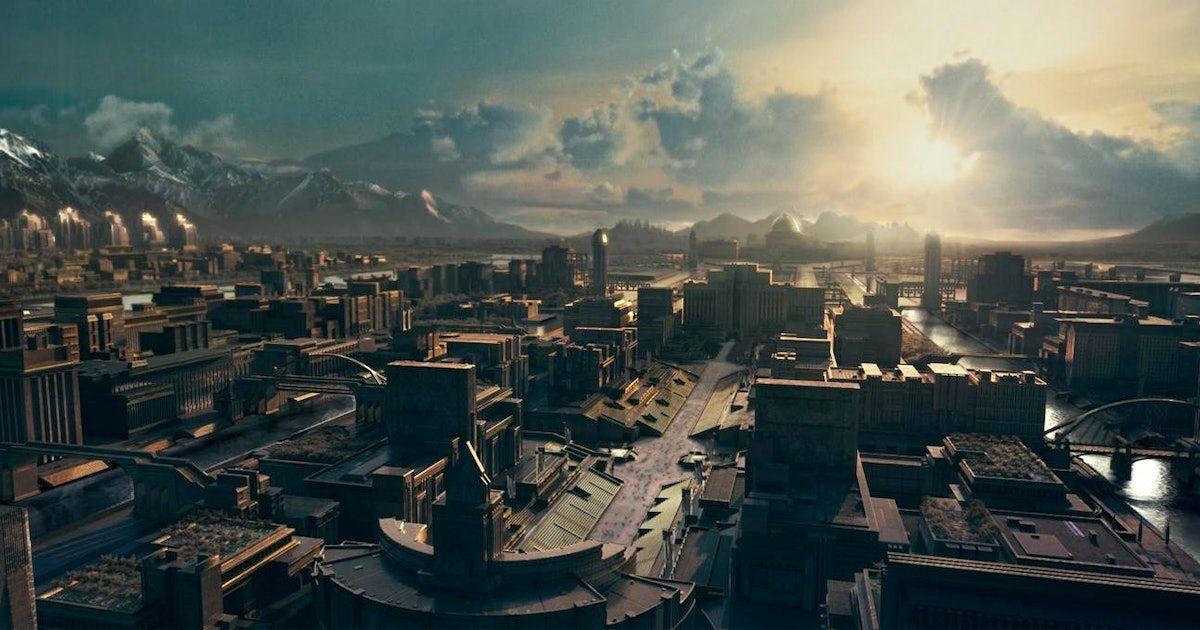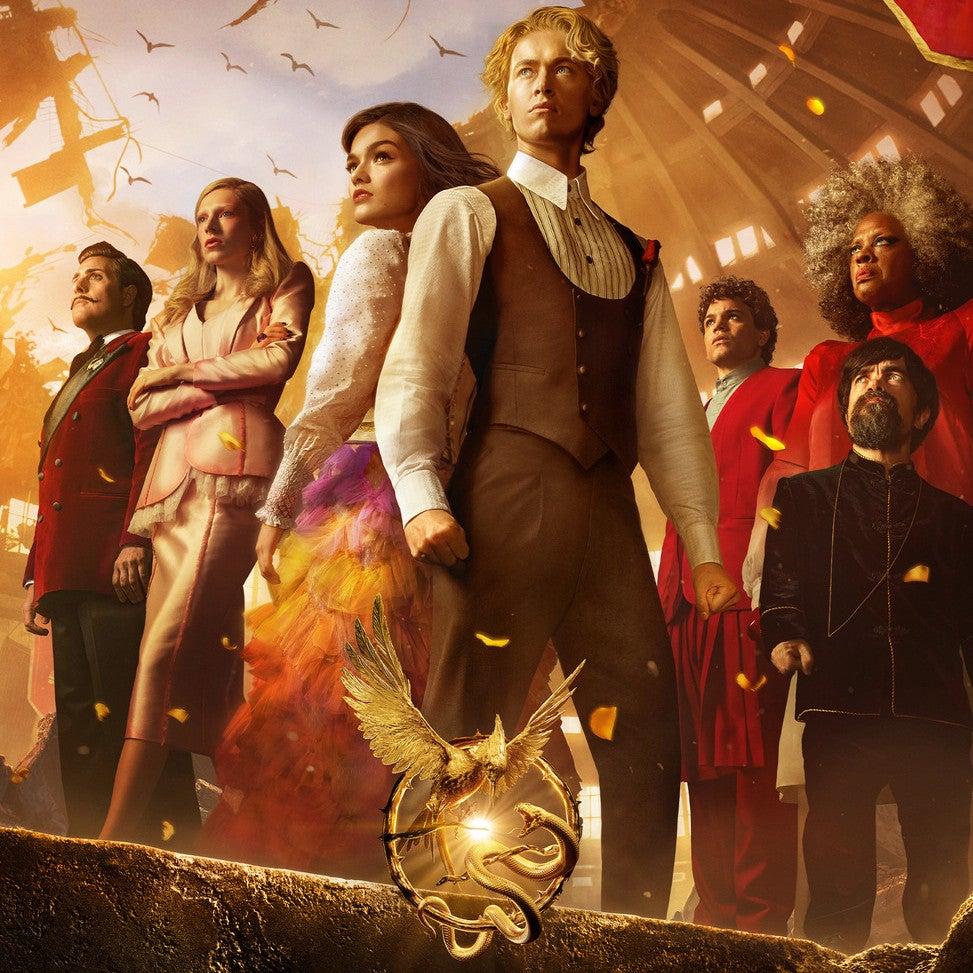In the realm of dystopian literature, few works have captured the public’s imagination quite like Suzanne Collins’ “The Hunger Games” series. While set in a fictional future, the narrative offers a mirror to contemporary societal dynamics, prompting readers to reflect on the parallels between the oppressive world of Panem and the realities of modern life. This article delves into the various facets of “The Hunger Games” that resonate with current social, political, and economic issues. By examining the themes of systemic inequality, media manipulation, and the spectacle of violence, we uncover how this fictional universe serves as a commentary on the complexities and challenges of our own society. Through an analytical lens, we explore the enduring relevance of Collins’ work and its capacity to provoke critical discourse on the state of the world today.
Class Stratification and Economic Disparities in Panem
The world of Panem, as depicted in The Hunger Games, is a stark representation of class stratification and economic disparities, mirroring some aspects of our modern society. The Capitol’s opulence starkly contrasts with the destitution experienced by the districts, highlighting a significant divide between the wealthy elite and the impoverished masses. This division is not merely economic but also cultural and social, with the Capitol’s citizens enjoying extravagant lifestyles while the districts struggle for basic survival.
Several elements in Panem echo the real-world consequences of economic inequality:
- Resource Allocation: In Panem, the Capitol controls the distribution of resources, ensuring their abundance while the districts face scarcity. This mirrors real-world scenarios where wealthier nations or communities have disproportionate access to resources.
- Power Dynamics: The Capitol maintains its power through oppressive policies and the manipulation of information, akin to how elite groups can influence political and economic systems to maintain their status.
- Social Mobility: Just as the districts have limited opportunities for advancement, economic disparities in our world often result in barriers to social mobility, perpetuating cycles of poverty.
By examining Panem’s societal structure, we gain insight into the broader implications of inequality and the importance of addressing these issues to foster a more equitable world.

Media Manipulation and Its Impact on Public Perception
The dystopian world of The Hunger Games offers a striking commentary on how media can be wielded as a tool for control, shaping public perception to serve the interests of those in power. In the fictional nation of Panem, the government meticulously crafts a narrative that glorifies the annual Hunger Games as a symbol of unity and sacrifice. This carefully curated spectacle distracts the populace from the harsh realities of oppression and inequality. Media manipulation in this context serves several purposes:
- Distraction: The grandeur and drama of the games divert attention from systemic issues.
- Propaganda: Victors are turned into celebrities, reinforcing the Capitol’s power and benevolence.
- Control: By controlling the narrative, dissent is minimized, and the status quo is maintained.
In modern society, similar tactics can be observed, where media often highlights sensational stories to overshadow critical issues. The focus on celebrity culture, reality television, and viral trends can dilute public discourse, prioritizing entertainment over meaningful engagement. The manipulation of information not only influences what is perceived as important but also dictates how issues are understood, shaping collective attitudes and beliefs. By examining the parallels between Panem’s media strategies and contemporary practices, we gain insight into the profound impact media has on our understanding of reality.
Youth and the Burden of Societal Expectations
- High Expectations: The youth in “The Hunger Games” are thrust into a world where societal expectations are not just a burden but a matter of life and death. Katniss Everdeen and her peers are expected to embody courage, resilience, and sacrifice for the entertainment of a disconnected society. This reflects the real-world pressures young people face today, where societal expectations often demand perfection and extraordinary achievements.
- Survival and Conformity: In both the fictional and real worlds, young individuals are expected to conform to societal norms to survive. Just as the tributes must navigate alliances and strategies to stay alive, today’s youth often feel compelled to adhere to societal standards to succeed. This need for conformity can stifle individuality and creativity, echoing the struggles faced by Katniss as she battles not just for survival but for her identity.
Emotional Toll: The emotional burden placed on the characters in “The Hunger Games” mirrors the psychological strain experienced by young people today. The constant pressure to meet societal expectations can lead to anxiety, depression, and a sense of isolation. Just as Katniss grapples with the trauma of the Games and the weight of being a symbol of hope, modern youth often carry the heavy load of being expected to drive change and innovation in an ever-evolving world. This parallel highlights the need for a societal shift towards more supportive and understanding frameworks for young people.
Rebellion and the Quest for Autonomy in Oppressive Systems
In Suzanne Collins’ “The Hunger Games,” the narrative vividly captures the struggle for autonomy within an oppressive regime, a theme resonant with many aspects of modern society. The citizens of Panem are subjected to an authoritarian government that exercises control through fear, surveillance, and manipulation, echoing real-world situations where individuals and groups fight against similar systems. In such environments, the quest for autonomy becomes an act of rebellion, often sparking movements that seek to dismantle existing power structures. This dynamic is mirrored in various contemporary settings, where marginalized communities push back against systemic injustices, striving for self-determination and freedom.
- Surveillance and Control: The Capitol’s constant surveillance of its citizens parallels the pervasive monitoring seen in today’s digital age.
- Media Manipulation: Just as the Capitol uses media to control the narrative, modern societies witness the use of media to shape public opinion and maintain power.
- Social Inequality: The stark division between the affluent Capitol and the impoverished districts mirrors the growing economic disparities in the world today.
Katniss Everdeen’s journey from a pawn in the games to a symbol of resistance underscores the transformative power of individual agency. Her evolution represents the universal struggle for identity and independence within systems that seek to suppress these very qualities. In this light, “The Hunger Games” serves as both a cautionary tale and a source of inspiration, reminding us of the potential for change when individuals dare to challenge the status quo.
